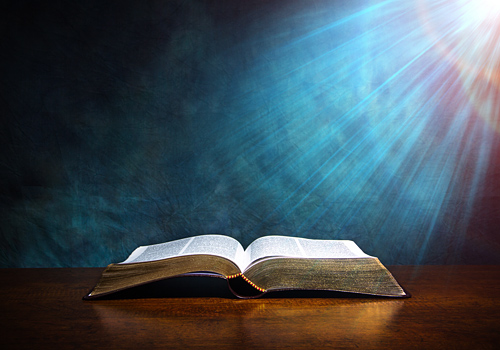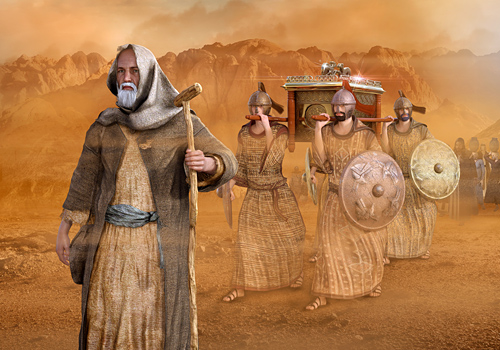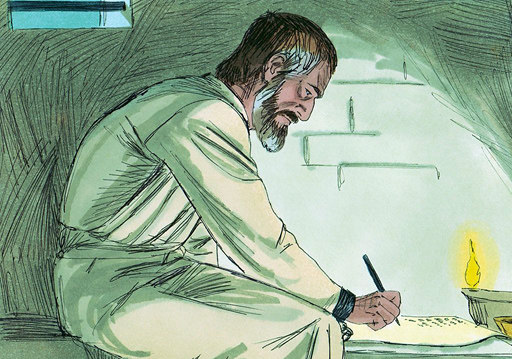Introduction to the Book of Joshua
This page is an introduction and summary for the book of Joshua in the Christian Bible. (Joshua is also in the Jewish Bible, but I'll be covering it from a Christian perspective).
I'm doing several new pages on the first five books of the Bible (the books of Moses, also called the Pentateuch), and the "former prophets" which are the books of Joshua, Judges, 1&2 Samuel and 1&2 Kings.
I'll be working on these new pages in parallel as I study for my Old Testament exam on the 10th of June, and adding to them as I study. I figured I might as well be writing my study notes up online as web pages, since now that this website is set up, it's not that much harder than just doing them in a Word document (or something like that).
Introduction to Joshua
Joshua is the first book of the "former prophets" section of the Bible. In English Bibles it's the first of what's usually called the "history books". It's name in the Hebrew Bible is just the Hebrew version of "Joshua", the same as the English name
Before Reading or Studying Joshua
Before reading or studying the Bible, it's a good idea to take a short break — to think about where the book of Joshua came from, and how it's relevant to your own modern life right now. Christians believe that the Bible is the inspired Word of God. That is, the words in Joshua were recorded by people in the distant past, as given to them by God.
Also, the Bible is a living document — it's the living word of God. This is a foreign concept to most of our modern culture today, so it takes some time to think about, and get used to the idea of it. Many people think of God as not speaking directly to us. Yet as Christians, God does speak to us directly, in words — and the way God does this is through his words in the Bible. This means that it's directly relevant to us, personally, as we read it. As you read the words of Joshua (even if you don't really believe in this kind of stuff yet, you can still try doing this, as an experiment), imagine that God is speaking to you, personally, and directly.
Also, the Bible is an ancient document. It's very old — and the first few books of the Old Testament, especially so. A lot of things have changed since God's words were first recorded by humans. This means a lot of the Bible can be hard to understand in our modern world today. Which is why we're so lucky to have so much access to resources that can help us to understand it. As you read the words of Joshua, also imagine that you're back then, in the days when it was written. This can help a lot with understanding the meaning (of some parts of the Bible more so than others). Learning about what the words meant in their original setting is a really good place to begin trying to understand what they mean now. Keep this idea in mind as you read the rest of this web page, and as you read the Bible.
Also, the Bible is a precious document. Its true value is hard to imagine. It's probably fair to say that nearly everyone today underestimates its value — at least in the free and well-off countries, where it's very easy (and cheap) for anyone to obtain a copy of the Bible, or read it on the internet. To help get a better appreciation for the value of the Bible, think about how God's word has travelled down through the centuries, and been preserved by copyists, translators, printers, and other people. At times parts of it were lost, and then found again. In recent years, thousands of ancient copies of scrolls have been found, which were meticulously copied by hand over and over, for thousands of years. In some places and at some times, to own a copy of the Bible (or even to believe in it) would bring the death penalty. This included many of those who wrote parts of it, or were written about in it (such as the Apostles of Jesus).
Interesting Facts About the Book of Joshua
- The term most often used to describe the state of the Israelites after conquering land is "rest".
- There's been a huge amount of debate, and concern, over the "ethics" (or lack of) seen in the Bible, and especially in the Book of Joshua — where God instructs the Hebrews to "completely destroy" many of the other tribes/civilisations they go to war against/invade.
- The usual explanation for this harsh treatment, which is explained in the text of the Bible, is that God wants these people to be destroyed because of their "detestable" practices. Which in most (or all) cases included extreme barbarity in the way they treated other people — both people in their own society and the people they went to war against — and the general lack of moral goodness (i.e., evil) of the ways of these people. Which included things like human sacrifice.
- People have also suggested other reasons to excuse the extreme harshness of God's commands here, some of which are less directly obvious from a plain reading of the Bible's text. One main one is the spiritual aspects of the situation. The people whom the Israelites are to drive out of the lands, and/or completely destroy, had given themselves over to spiritual contaimination, in the sense of being posessed (and therefore carrying) evil spiritual forces. And (assuming the people themselves were not interested in repenting or changing or getting rid of these spirits/demons), the only way to prevent the demonic world from contaminating and controlling all of humanity was for the people themselves to be destroyed.
- In this view, the removal of this spiritual contamination/possession was necessary, and the main reason to get rid of the people (who had chosen to align themselves with these evil spirits, such as those who would command the sacrifice of your children, such as by burning them to death in a ceremonial/sacrificial fire). The mention of "burning their children in the fire" is common in the Old Testament.
- In an even more "out there" view, the reason for the prescribed extermination of these people groups would be that these people were contaminated with the DNA of aliens. This is also sometimes mentioned as a reason for the flood (and Noah's ark) story in Genesis. It mentions in the Bible that Noah was "perfect in his generations", and some people take this to imply that his family was not contaiminated by the alien DNA as mentioned in Genesis 6, where the "sons of God" had children with the "daughters of man".
- Much of this is very strange, when viewed from a modern first-world Western worldview. Yet the Bible is a very ancient document, and the way people see things (and many other things) have changed a lot since then.
- Yet many other things have not changed that much at all since then.
Read Joshua
Click here to read the book of Joshua.
Click here to see Joshua in its original language of Ancient Hebrew. Or here to read Joshua in Hebrew and English side-by-side.
Cover image by Fer Gregory / Shutterstock. The Ark of the Covenant.








